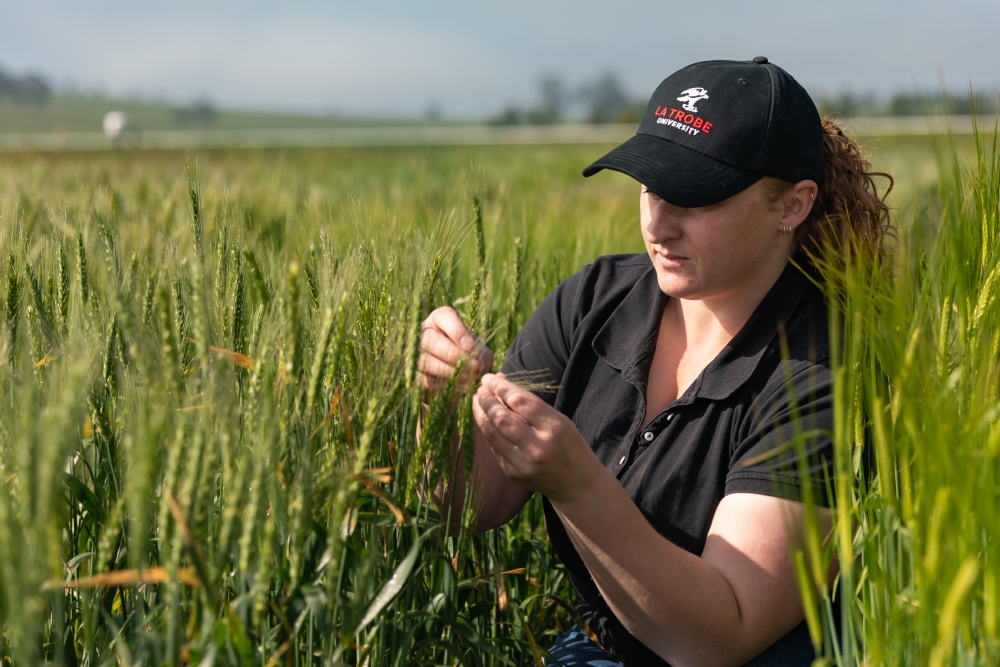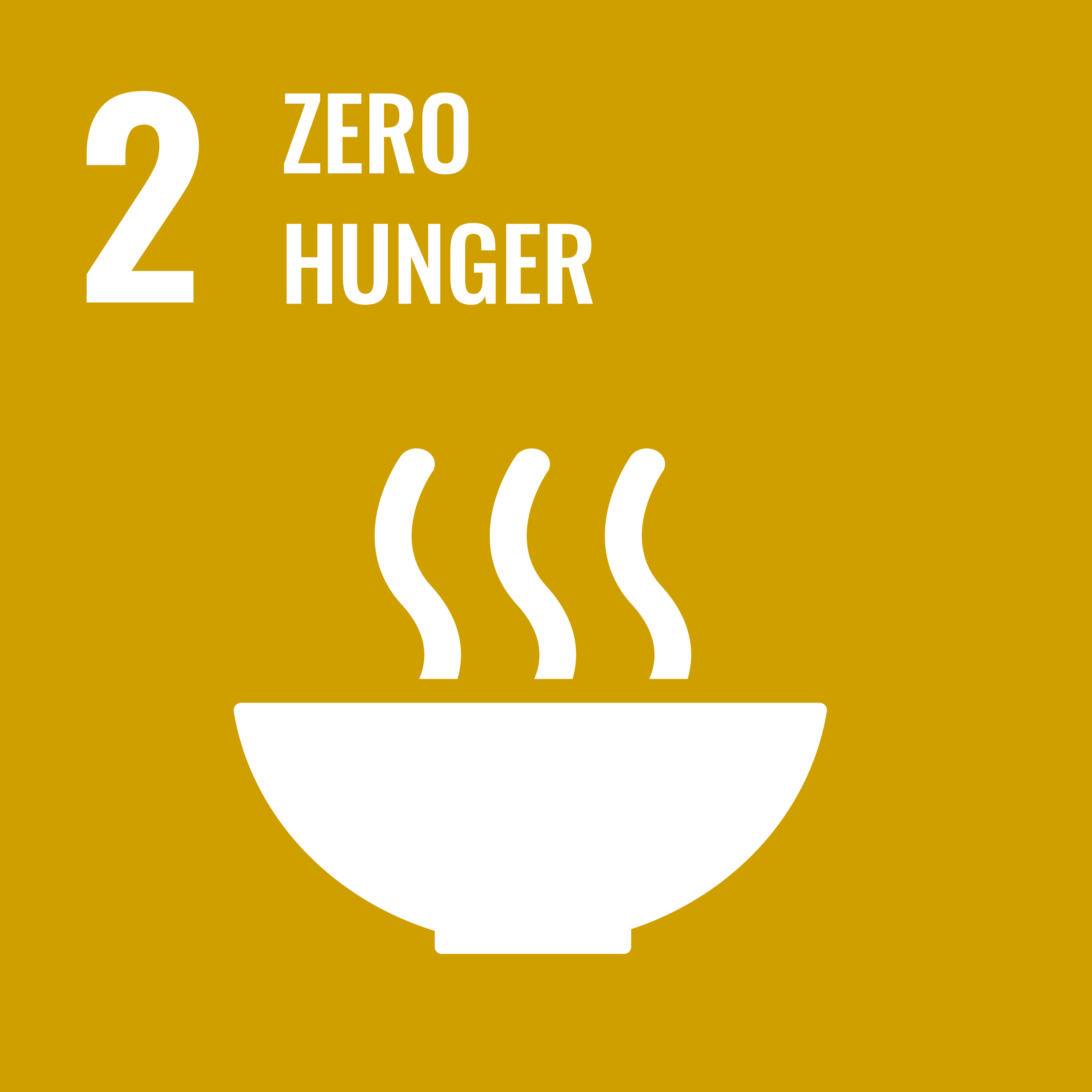Sustainable food and agriculture

Sustainable food and agriculture
The production of high-quality crops, foods and plant-based medicines is critical for food security, health, wellbeing, and the environment.
La Trobe researchers develop cutting edge methods to improve capability and capacity, and to secure a sustainable future for agriculture and food production. Our researchers do this by working in partnership with primary producers, the food industry and government.
La Trobe's research into Sustainable Food and Agriculture contributes to the following United Nations Sustainable Development Goals (SDGs)





Selected impact stories

Leading team: Associate Professor Jim Radford
Natural capital refers to all living and non-living elements of the natural environment that combine to provide benefits or services to people. It forms the foundation of all farming systems: soil and water support crops and pastures, plants provide food and shelter for livestock and regulate the micro-climate, and native animals provide services such as pollination, pest control and waste decomposition. A key challenge for farmers, however, is the difficulty in auditing their natural capital in a way which succinctly represents its value. From 2020 to 2023, with funding from the Australian Government’s Smart Farming Partnership Program and co-investment from La Trobe University and the Odonata Foundation, La Trobe University - with a consortium of nine industry partners, and in close collaboration with 50 farmers across New South Wales, Victoria and Tasmania - led the Farm-scale Natural Capital Accounting project in order to address this critical gap in sustainability reporting that will promote sustainable farm practices. The project – the first of its kind in Australia and the world – developed a methodology for measuring and communicating farm-scale environmental performance and natural capital management, integrating farm management operational data with environmental and biodiversity data to generate 50 farm-scale natural capital accounts. The accounts provide farmers with verifiable information about the natural capital assets on their farm (e.g., soil, vegetation, biodiversity) and the ecosystem services that flow from these assets (e.g., pasture, shelter, pest control). They provide a pathway for farmers to set and achieve their financial, environmental, and social goals and to help communicate their environmental performance to their stakeholders in a format that is coherent with internationally recognised standards for environmental-economic accounting. As sheep farmer Jo Bear from Loddon Vale describes: ‘This tool reduces our environmental footprint, it aligns with market demands and partnerships, shows the profitability of sustainable farming, fosters discussions with banks and authorities and brings well-being to farmers, families and communities’.

Leading team: Dr Veronica Borrett
Medicinal cannabis is showing great promise as a potential therapeutic for a wide range of conditions from chronic pain and childhood epilepsy to sleep disorders and anxiety. However, given its historical status as an illicit drug, research into its medical potential has been hindered. Cann Group is the first company to be issued with a Cannabis Research Licence by the Australian Government’s Office of Drug Control and has established a major regional manufacturing facility. Cann Group are a key partner in the ARC Industrial Transformation Research Hub for Medicinal Agriculture (MedAg Hub) that is led by La Trobe University. The MedAg Hub is a powerhouse of research and industry talent in medicinal agriculture, attracting international partners, as well as offering $2 million of scholarships for graduate students, creating a pipeline for new high-skill jobs in the sector; thus generating jobs in rural and regional Australia, and ultimately boosting economic activity in Melbourne’s north. The MedAg Hub has positioned Australia as a world leader, and highlights Victoria’s role in the emerging medicinal agriculture market.

Leading team: Professor Mathew Lewsey & Dr Kim Johnson
Long-term off-Earth habitation is on the horizon. An established presence on the moon by 2028 will be a precursor to crewed Mars missions but key challenges for mission planners still exist. These include providing a nutritious and varied food supply to sustain physical and mental well-being for humans during long-term Space habitation. Professor Lewsey and Dr. Johnson are chief investigators of the national collaboration ARC Centre of Excellence in Plants for Space (P4S). This centre is a strategic opportunity to expand the global biomanufacturing sector, working with government, industry, and academia to develop a vibrant and successful Space sector in Australia and overseas. P4S breakthroughs will offer new plant efficiency solutions for challenging and remote Earth environments such as low water and high-saline agriculture. Lewsey and Johnson are also participating in outreach initiatives at La Trobe University by working with partners such as the Growing Beyond Earth program and Victorian Space Science Education Centre, to attract students into the growing field of space agriculture and prepare them for the future.

Leading team: Professor Jennie Pryce & Dr Caeli Richardson
In Australia, livestock emissions account for 70% of greenhouse gas emissions in the agricultural sector. Up to 44% of livestock emissions are methane and 65% of these emissions, come from cattle. In partnership with DataGene, Agriculture Victoria Research, Dairy Australia, the Gardiner Dairy Foundation and La Trobe researchers, an index, that includes predictors of methane, has been developed and implemented in the Australian national breeding program. This allows for farmers to make a conscious breeding decision, in turn, reducing environmental impact of dairy cattle while balancing genetic progress in other valuable traits such as production, health, and fertility. The Sustainability Index released by DataGene provides Australian dairy farmers with a breeding tool to add into their mix of management practices to reduce their system's emissions intensity. Work is now underway to measure and predict methane traits.

Leading Team: Associate Professor Robert Ross
Winter pruning of dried fruit cordons is still performed by hand. It is a time and labour-intensive activity which is estimated to account for 20-30 percent of crop production costs in the dried fruit industry. The constraints of current manual practices have not only increased costs but exacerbated labour shortages and hindered scalability and expansion of production. With funding from the Australian Government’s Innovation Connections program and Trigg Industries, and in collaboration with Dried Fruits Australia and the Mallee Regional Innovation Centre, La Trobe researchers led by Dr Ross have created a tractor mounted, LiDAR guided pruning system as a major step forward in automating the winter pruning process. By creating a semi-autonomous cordon pruning system operated by a tractor operator, the speed of pruning and the area that a sole producer can manage increases, thereby reducing the cost of production and – ultimately - eliminating this once time-consuming operation for the industry.

Leading team: Professor Travis Beddoe
American foulbrood (AFB) is an infectious disease of honeybee larvae that can have severe detrimental impacts on bee populations if unmanaged, putting risk on honey production and other food crops which rely on bees as pollinators. Current detection of AFB requires a honey sample to be sent to a laboratory for further testing. However, this can be time-consuming and costly. At La Trobe University, Professor Beddoe and his team have developed a cheaper, faster, and more sustainable detection method that can reduce AFB outbreaks on a large scale. This method allows for early on-site detection, allowing Australian beekeepers to quarantine hives early and/or destroy them to prevent the spread. This research at AgriBio in early detection aims to improve Australia’s agricultural sector in reducing disease impact with potential implications worldwide.

Leading team: Professor Travis Beddoe
In Australia, liver flukes (Fasciola hepatica) infection in cows and sheep costs the agricultural sector up to $80 million annually and another $10 million on treatments. The threat of La Nina in Australia will only continue to worsen this issue, as resistance to treatments and the rate of infections are expected to increase. Current diagnostic tests focus on detecting the presence of mature parasites in faecal matter. This process is labour-intensive, expensive and has low sensitivity. However, La Trobe researchers have found a way to detect parasite DNA in waterways; by detecting immature forms of liver fluke before it enters the host, preventative measures can be put in place to manage the spread of the disease. In partnership with AgriBio, the Beddoe laboratory has developed a technology for farms to integrate into their parasite management plans to improve productivity and limit the disease on Australian farms.